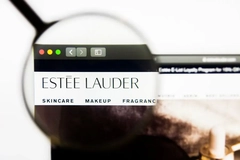CoRAP flags toxicity of cosmetic preservative propylparaben and cleaning chemical sodium chlorite

14 Sep 2023 --- The European Chemicals Agency (ECHA) has published the Community Rolling Action Plan (CoRAP) conclusions on the chemicals propylparaben and sodium chlorite, deeming them hazardous.
Propyl 4-hydroxybenzoate or propylparaben is commonly used as a preservative in cosmetics, personal care products, perfumes and fragrances. In comparison, sodium chlorite is used in washing and cleaning products as a disinfectant.
Belgium evaluates propylparaben
Member state Belgium identified that propylparaben “has endocrine-disrupting properties and can be identified as a substance of equivalent level of concern to carcinogenic, mutagenic or toxic for reproduction/persistent, bioaccumulative and toxic substances.”
Moreover, the substance was identified as toxic to the environment during the evaluation. Thus, propylparaben is a substance of very high concern (SVHC), according to CoRAP.

Based on the findings, Belgium proposes that further regulatory action on an EU level is required.
What does it mean for propylparaben use? Propylparaben is commonly used as a preservative in cosmetics.
Propylparaben is commonly used as a preservative in cosmetics.
This month, Belgium has plans to identify propylparaben as an SVHC, followed by the Regulatory Management Option Analysis, which can conclude that regulatory risk management at the EU level is required.
If propylparaben is identified as SVHC under the Candidate List for authorization, then its future use in cosmetics might be restricted if they are then placed in the Authorization List.
Hungary identifies human health hazard
Member state Hungary evaluated sodium chlorite and concluded that the chemical had acute toxicity, skin corrosion/irritation, eye damage/irritation and repeated dose toxicity concerns. Previously, it had confirmed mutagenicity as well.
As a result of these findings, Hungary concludes that there is a need for a follow-up of regulatory action at an EU level and that the “harmonized classification and labeling of the substance is deemed warranted.”
However, sodium chlorite’s environmental hazard was not evaluated.
Regulatory news
In related news, Germany proposed that two UV absorbers are substances of very high concern (SVHC), and ECHA opened a public consultation on these substances.
The French Ministry for Ecological Transition is seeking public opinions on the national health agency’s draft Regulatory Management Option Analysis project to determine whether the UV filter octocrylene requires measures regarding possible environmental risks and what they might be. The consultation is closing tomorrow.
Meanwhile, the UK Office for Product Safety and Standards launched two “calls for data” on nanomaterials used in cosmetics and the safety of cosmetic chemicals, ending June 27, 2025.
By Venya Patel













